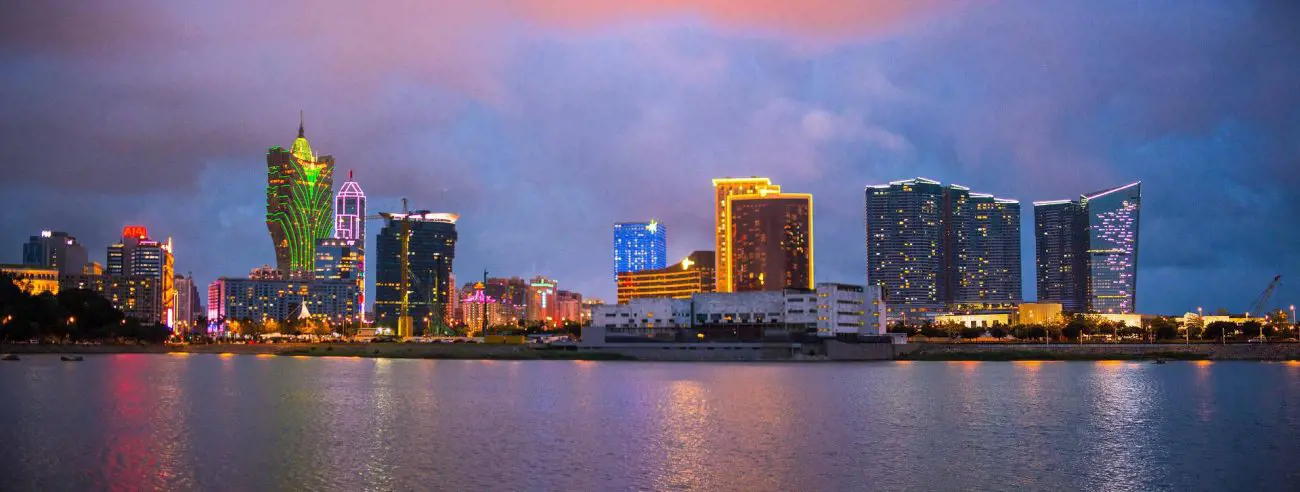Ho urges “disciplined liquidity management” as Melco struggles continue in Q1
Melco chairman and chief executive Lawrence Ho called for “disciplined liquidity management”, as the operator’s revenue declined further to $474.9m (£383.9m/€448.4m) in Q1 amid continued restrictions in Macau.

While revenue was down by only 8.5% from Q1 of 2021, it was 65.1% below the level recorded in Q1 of 2019, the last Q1 before the Covid-19 pandemic affected business.
Casinos made up $395.1m of this revenue total, down by 8.9% from Q1 of 2021. Rooms brought in $36.5m, down 8.1%, while food and beverage revenue declined by 6.9% to $24.3m. Entertainment, retail and other revenue dipped by 1.9% to $19.0m.
Breaking revenue down by property, Melco’s flagship City of Dreams resort in Macau brought in $256.7m, 15.1% less than in Q1 of the previous year. This figure was also down 64.1% from pre-Covid 2019.
At the operator’s Studio City property, revenue was down 27.4% to $71.1m, while at the Altira Macau, revenue was down 2.8% to $13.9m. Melco’s chain of Mocha Clubs - smaller gaming venues in Macau - brought in $21.2m, up 19.1%.
Ho said that the decline in revenue from Macau mostly occurred during the last two months of the quarter, when a number of restrictions were reintroduced.
“Our results for the first quarter of 2022 continue to reflect the impact of the COVID pandemic,” he said.
“We saw a solid performance in Macau through the Chinese New Year holiday period, but COVID-related restrictions and tighter border controls led to Macau GGR falling more than 50% from February to March 2022, and negatively impacted our operating and financial performance for the remainder of the first quarter.”
Looking at other markets, results were more promising. City of Dreams Manila in the Philippines brought in $86.9m, which was up 9.3% year-on-year.
“In the Philippines, COVID-related restrictions have been relaxed under alert level 1, and we are starting to see international travel return with meaningful volume growth in our mass segment,” Ho said.
Melco’s temporary and satellite casinos in Cyprus brought in $16.1m, in what was their first quarter of operation.
The business then paid $610.8m in operating expenses, down 10.4%.
This included $307.4m in costs of sales related to casino gaming, down 16.3%, plus $13.0m related to rooms, $23.8m for food and beverages and $6.0m for entertainment and retail.
In addition, the business paid $101.2m in general and administrative costs, down 6.5% and $121.4m in depreciation and amortisation costs, up 0.3%.
Melco also paid $7.2m to parties involved in the construction of City of Dreams Manilla and $8.6m in property charges, as well as $2.4m in pre-opening costs and $5.7m in amortisation of land use rights. As a result of these costs, Melco made an operating loss of $135.9m. This was 16.5% less than the loss recorded in Q1 of 2021.
The business then made an $84.0m loss on non-operating items, mainly due to $87.1m in interest expenses. This meant that it made a pre-tax loss of $219.9m. The business then paid $2.0m in tax for a final net loss of $221.8m.
Ho said that given the continued losses, Melco must take action to ensure that it has enough cash reserves to continue its development projects such as “phase two” of Studio City.
“Disciplined liquidity management remains a key area of focus,” he said. “Total debt increased by $1.3 billion year-on-year as we increased available liquidity to support our operations and ongoing development projects.
“We will be prudent in managing our balance sheet and liquidity profile as we manage the business through this challenging environment.”
Ho added that the business looked forward to the passage of a new law that would overhaul gambling in Macau. The law, which was approved at the first reading earlier this year, would eliminate subconcessions, which Melco currently uses to operate, but will instead offer six concessions, so the number of operators in the market will stay the same. These new concessions will each last 10 years.
“Turning back to Macau, we look forward to the finalization of the new gaming law by the Macau Government and fully support the Macau Government’s initiatives in relation to the new legislation,” Ho said.
“We appreciate the Macau Government’s efforts to maintain a streamlined and transparent process. We are committed to participating in the public tender for the award of a new gaming concession and are dedicated to the continued development and diversification of Macau’s economy.”